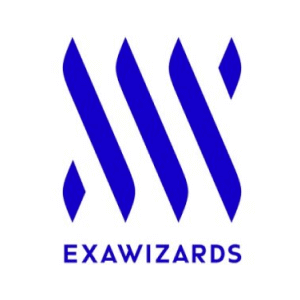Updated April 24, 2023
Why Recruiters Don't Reply: A Guide to Coping With the Unknown
Whether you’re waiting to hear from your dream company or waiting for someone to reply to the hundreds of job applications you’ve submitted, it always stings when you don’t get a reply.
We’ve all been there.
You put hours of your precious time into your applications. You prepared a unique cover letter for each job listing. And yet, there’s nothing but radio silence.
Like many others, I used to care a great deal when I didn’t hear back from recruiters. I took it personally and didn’t realize that it simply happens to the best of us and that recruiters are people who have busy lives too.
On the other hand, I also learned that it sometimes can be personal and that there are more ways to cope with being ghosted by a company that don’t involve being blindly optimistic.
In the end, whether the problem was me or the company, learning how to deal with the unknown and knowing what to do and what not to do simply made me a better professional.
In this post, I’ll talk about some of the potential reasons why recruiters don’t reply to emails and job applications. I’ll also tell you what you can do to turn things around or if you simply need to move on.
Without further ado, let’s begin by taking a look at some potential scenarios.
In this article: 📝
Sometimes You Just Need to Wait Longer
Now, I’m not saying that your first approach should be making excuses for the company, but oftentimes, recruitment processes take longer than you’d think.
Especially if you’re a new graduate with not many job application processes under your belt, chances are that you just need to wait a little longer before you start drafting that email lecturing the recruiters about basic human decency.
If you applied through any job platform that shows you how many applications have been made, you must be aware that competing with hundreds or even thousands of people for a single job is quite common. Now, consider this: what if you’re among the first candidates to be interviewed in a long list of hundreds of candidates?
It’s common to think, “But my interview went great! Why would they even need to see other people if we had such great chemistry?!” However, you have to look at it from a recruiter’s perspective.
First of all, a recruiter most likely isn’t going to put their job on the line for you and decide to end the recruitment process after a single good interview with a candidate. It just doesn’t make sense.
Secondly, even if you absolutely killed it during your interview, it’s still in the company’s best interest to see all the candidates and make an informed decision. You may be great, but the potential of another candidate being fantastic is just too promising to throw away.
So, my first advice to you is to be patient. You might not hear anything right away, and that’s fine. It doesn’t have to mean that you didn’t get the job. However, you also need to keep your expectations in check.
In the meantime, you can check out my post, where I shared valuable job interview tips to make sure that you’re not missing anything crucial.

Learning to Move On and Letting Go of Expectations
There’s no doubt that the healthiest approach is to be patient and not immediately start worrying when you don’t hear back from a recruiter. However, what you need to understand is that in a recruitment process, not every action yields a tangible result.
I know that it’s impossible to interview for a job and completely forget about it until you hear back. However, you also don’t want to build expectations and expect solid results at every stage of the recruitment process. When you don’t hear back, you need to learn to shut down the voice in your head that tells you that you wasted your time.
After all, not every specific action needs to yield a result. Sometimes, your efforts take you places, and sometimes they don’t. What’s important to realize is that it’s the possibility you’re creating by making an effort that’s worth it.
When you apply or interview for jobs, you’re giving yourself a potential outcome, but you don’t have control over everything that’ll turn that potential into reality. Sometimes, even if you do all you can and are indeed the perfect fit, management can change, positions can be switched, and recruitment practices can be altered.
You need to focus on the things you can control instead of speculating about the unknown. Write great cover letters, prepare an attractive resume, edit your LinkedIn page, and put on your most charming face during interviews — not because you’re guaranteeing yourself a job by doing so but because you’re giving yourself a chance.
Remember that if you don’t take any action at all, there would be no chance to speak of.
You Don’t Know What’s Going On Behind the Scenes
Oftentimes, when a company has a job opening, internal candidates who are employed in other departments at the company are considered for the position as well. Of course, in an ideal world, this shouldn’t affect your chances of getting the job, but this is hardly ever the case.
While it’s true that everyone should have a fair shot at the position and no one should be favored, in reality, already being an employee at a company inevitably gives internal candidates an edge over external applicants.
Some internal candidates are even directly referred by department heads, so it’s only natural that they have a higher chance of getting the job. However, this isn’t the only case where things behind the scenes may hinder your application.
Sometimes, companies make an offer to a candidate after a round of interviews, but they don’t let the other candidates know right away before they get a definitive answer. When a candidate declines an offer, the same candidates might be considered for a second round of interviews.
So, if you don’t hear back right away, there’s a chance that you may be considered later down the line or may even be asked to come in for another interview.
Always keep in mind that you don’t know the internal process of a company and that, for all you know, the hiring process may not even be over yet. You can try a gentle reminder, as I’ll explain in a bit, or you can choose to focus on other applications in the meantime.
Recruiters Are Employees Too
Another thing to keep in mind when you don’t hear back from a recruiter is that most of the time, they’re employees too.
Unless you’re interviewing directly to work with an individual or applying for a job at a very small office, your application will go through the recruitment team under an HR department.
Sometimes, people that work in recruitment departments can be busy with other tasks. They may have personal issues that may cause them to procrastinate or not return calls that aren’t of utmost importance.
Alternatively, communication at some companies might not be the best. It’s very seldom that recruitment alone decides whether a candidate gets hired in the end, and it’s the management or the team that’s hiring a new member who gets to make the final decision.
Of course, when management doesn’t duly inform the recruiters, it’s only natural that your calls are left unreturned. As recruiters may not always want to be persistent to get an answer from management, they might just not have an answer for you yet.

Bad Timing
When we’re left in the dark in situations where the outcome can be life-changing, we tend to look for complex answers. However, sometimes, the answer can be as simple as having bad timing.
If you’ve ever been employed at a company, you’re probably aware that things may get extremely busy, especially when a company is getting ready to release a big project or a deadline is approaching. At times like these, priorities may shift, and recruitment might have to deal with other tasks.
So, if you don’t hear back from a company after an interview, don’t immediately jump to conclusions and remind yourself that they may be busy.
Alternatively, you should also be mindful of any national holidays or usual vacation periods if you apply around those times. Even if the recruitment department is working, key people that’ll make the final decision may be out of the office.
For instance, if you had an interview right before Christmas, save yourself the frustration and wait until the new year arrives and things are back to normal.
Giving Bad News Isn’t Everyone’s Forte
I said this before, but I’ll say it again: recruiters are people too!
When you don’t end up getting the job after a painstakingly long interview process, guess who’s the one that needs to tell you that you weren’t hired? It’s the recruiter.
Think about an awkward conversation you had to have. Ever needed to break up with someone but didn’t have the guts to talk to them? That’s exactly how some recruiters feel, especially if you’re a great candidate.
At the end of the day, no one likes to be the one who delivers the bad news. When people have something they dread having to do or something they don’t know how to do, they tend to procrastinate or avoid doing it altogether.
Besides, as a recruiter likely won’t get in trouble for not replying to a candidate that wasn’t hired, which makes it the perfect crime, they can put it off indefinitely.
Remember that most of the time, it’s not you, and simply move on if they’re not returning your calls.
Can I Expect Companies I Apply Through Japan Dev to Reply?
As this is a question I frequently get, I wanted to talk about whether it’s guaranteed to get a response for applications made through Japan Dev before I move on to explaining what your options are.
When you apply for a job listing through Japan Dev and have an interview, companies will always get back to you after the interview to let you know whether they’d like to continue the process or not.
However, as you may know, there’s also another process prior to an interview where your documents are screened.
As this is only an initial stage and companies may receive hundreds or sometimes thousands of applications for a single job listing, it may not be possible to get back to every single candidate.
Especially when the result is negative, the companies may choose to allocate most of their resources to finding a fitting candidate instead of replying to candidates who didn’t pass the screening. So you might not hear back from the company if you didn’t pass their screening.
We as the Japan Dev team regularly follow up with applications made through Japan Dev and make sure the companies receive them. We try our best to motivate companies to respond to candidates at every step of the way, however, at the end of the day, we don’t have control over how they handle things.
Therefore, for the screening process, some companies may choose to reply to all candidates whether they pass or fail, and some may choose to only respond to candidates who pass their initial screening. I recommend waiting for at least a week, maybe two. If you don’t hear back, there’s nothing wrong with following up politely with an e-mail.
Of course, if you still don’t hear back, you can always contact us at contact@japan-dev.com and we’ll get in touch with the company directly to learn the status of your application. In the meantime, instead of waiting, you can apply to more job listings featured on Japan Dev, which are updated frequently.

Why Recruiters Don’t Reply: What You Can Do
If your key takeaway from my advice thus far is to stop worrying and not act out on a whim, you’re on the right track. However, as I explained, this doesn’t necessarily mean that you should do absolutely nothing when you don’t hear back after an interview or sending an application.
Having explained some of the reasons why recruiters might not be replying to your calls and emails, I’d like to close out this post by giving you some tips on what you can do if a recruiter leaves you hanging.
Don’t be afraid to follow up if you haven’t heard back in a few days or a week. You can try to reach out to the recruiter’s work email directly rather than sending an email to the company’s general address. Of course, try to be as polite as possible and keep it short.
Instead of asking whether you’re hired or not, you can also ask if the position is still open, which is information some recruiters feel more comfortable sharing, so you’re more likely to get a response.
For future interviews, you can also try sending a “thank you” email to the recruiter after the interview, which will prove that you’re serious and improve your chances of getting a response.
During the interviews, you can ask the recruiter about the timeline of the hiring process. You can also do this in your “thank you” email and ask when you can expect to hear back from them.
Lastly, you should remember that if you didn’t immediately get a negative response after interviewing for a job, it’s best to be patient. Recruitment usually doesn’t wait to reject candidates following an interview, and you may still have a chance if this isn’t the case yet.
As it’s normal to interview for multiple jobs and not get a reply, it’s important to not get frustrated easily and focus on things you can control — like your resume and interview manners.
If you’re wondering what else you can do, you can refer to my guide to job hunting in Japan, where I share general pointers for job hunting in addition to Japan-specific tips.
Get Job Alerts
Sign up for our newsletter to get hand-picked tech jobs in Japan – straight to your inbox.







